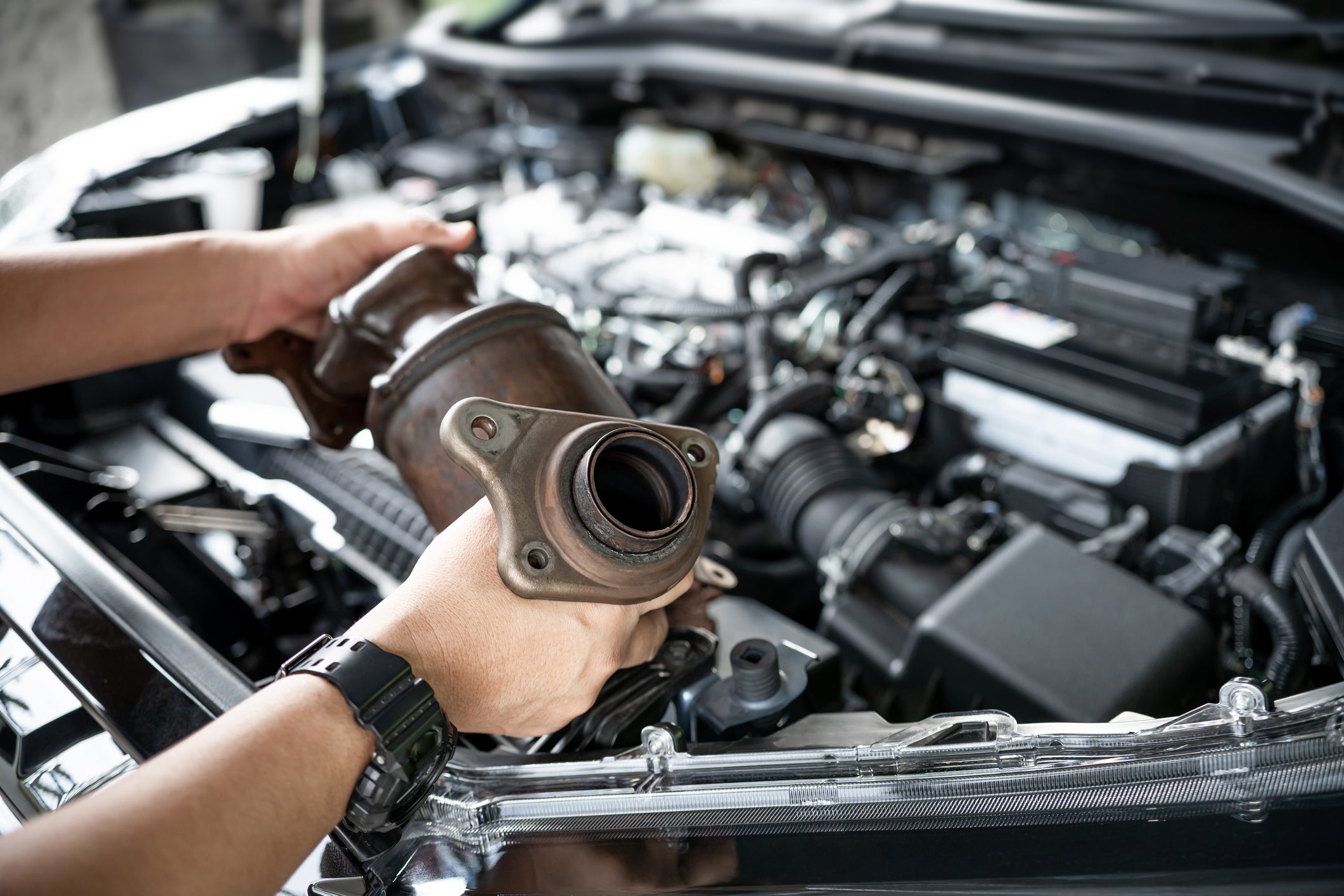You get into your car on the way to begin your day. You crank it up, and something is glaringly wrong.The mild-mannered vehicle that you parked yesterday roars instead of purrs. Your catalytic converter has been stolen, leaving your exhaust pipe gapped and your car in need of an expensive replacement.
A catalytic converter is an emission device that has been installed by federal law on every new car since 1975. The construction of it, and the valuable materials inside, take dangerous gasses such as carbon monoxide or unburnt fuel and convert them into carbon dioxide and water vapor.
Catalytic converters come in several shapes and sizes, normally installed towards the front half of the car, are about the size and shape of a large football, and unfortunately are worth a lot of money to scrap metal buyers.
MORE: MotorHeadline: As summer approaches, are you ready for the road?
These emission parts contain several grams of precious metals, such as rhodium, palladium and platinum. Metal prices have been rising, with rhodium topping $465 a gram at the time of this article writing. The thief will crawl under your car with a battery powered metal saw and cut the exhaust pipe in two places. The crime takes minutes and is difficult to prevent.
Trucks and SUVs are more vulnerable to thefts due to their higher ground clearance. Most catalytic converters fetch $150 to $300 at a scrapyard with a few exceptions going for much more.
Replacement costs range from $500 to $4,000 an incident, but it is heavily based on what car you own.
Statistics are hard to pin down due to many of these thefts not being claimed on insurance. In the 12-month period from July 1, 2020 to June 30, 2021, converter theft exploded nationwide, according to State Farm Insurance. State Farm paid $33.7 million for converter theft in the most recent 12-month period dating back from its press release in July 2021, compared to the previous 12-month period when it paid nearly $9 million. Catalytic converter theft is covered by comprehensive insurance after the deductible is paid. Currently there are 18 states studying this trend, with legislation coming soon.
What can you do as an owner to prevent this? It is dependent on the car you own, but here are some tips:
Park in well-lit areas: A majority of these thefts happen at night in empty car parking areas, as the actions of cutting off the converter are noisy and attention getting. Try to park in an area that has cameras or higher traffic if parking in public. Fleet parking areas at businesses are also targets, so business owners may want to upgrade security at these locations.
MORE: MotorHeadline: Car chip shortage lingers causing spikes in used car prices
Install a catalytic converter protection device: These devices, like most anti-theft devices, are not going to stop the theft, but it may slow the thief down or make you a harder target. The saw used to cut the exhaust can cut through just about any of these anti-theft devices, but it takes time. Someone looking for a quick score may move to another car. These devices are normally vehicle specific. Ask your local exhaust specialty shop for their offerings.
Have the vehicle identification number engraved on the part: Some exhaust shops offer this option as well. It will not prevent the theft, but it may give investigators a clue if found at a scrap yard or in the possession of the criminal.
Always arm your car alarm: Most vehicles have a car alarm standard from the factory. These alarms normally sound if a door or the trunk is open, which is no help with this type of theft. A system can be added that will sound an alarm if the vehicle is tilted or senses vibration.
If your catalytic converter is stolen, report it to the police immediately. They may step up patrols in the area and may even recover your converter. Do not drive your vehicle, as it may be dangerous or harmful to the car, and even cause carbon monoxide to build up in the cabin. If your car is newer, your insurance company should be called, and a claim should be started. As always, be safe out there, and I will see you on the road.










